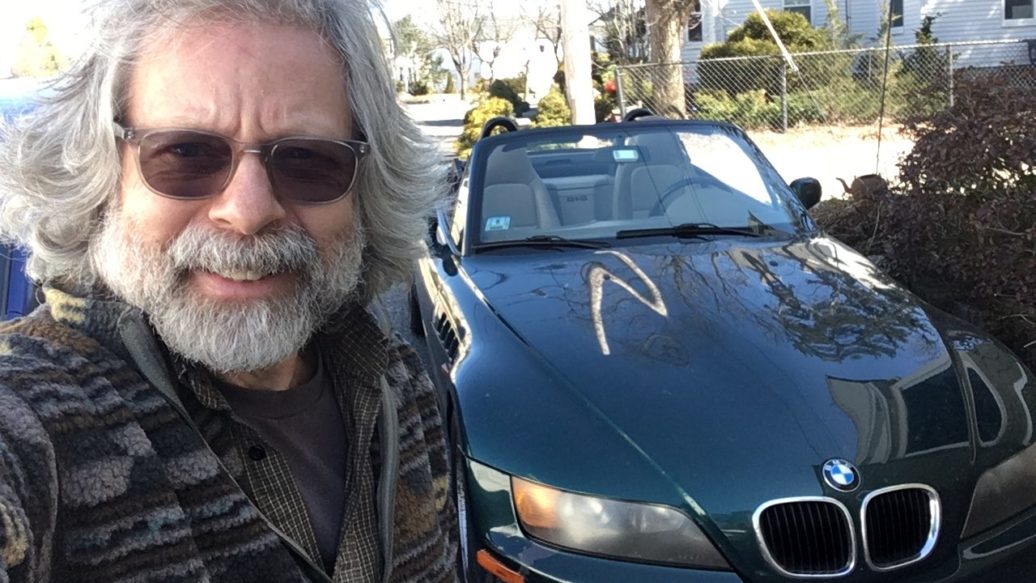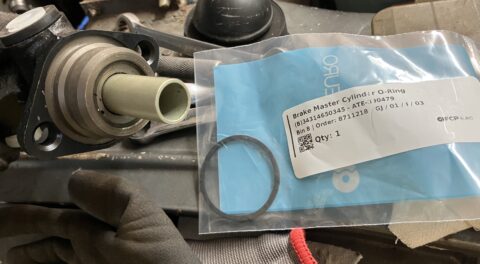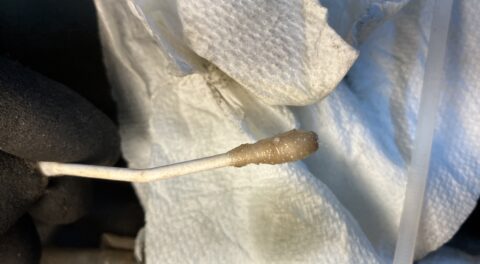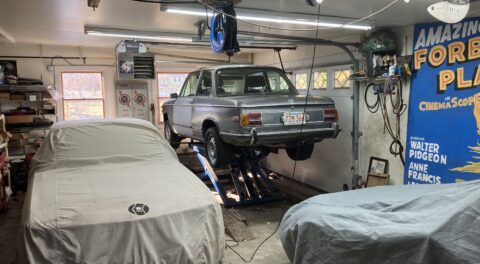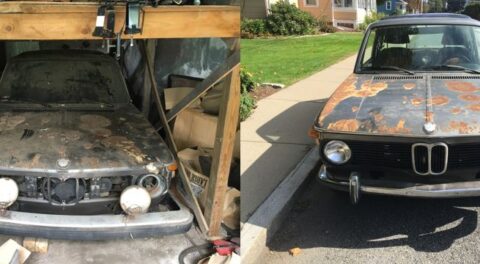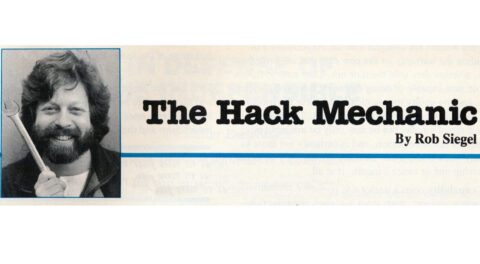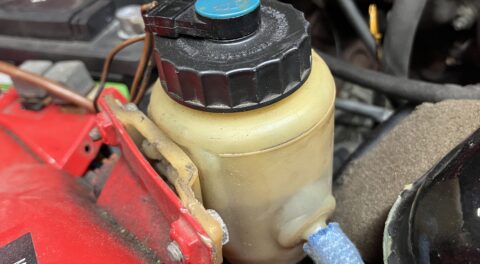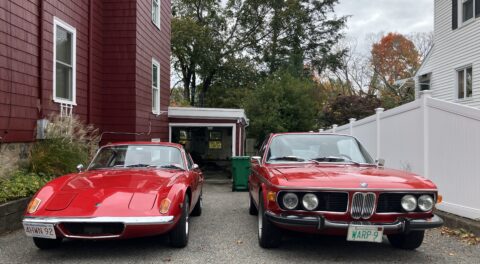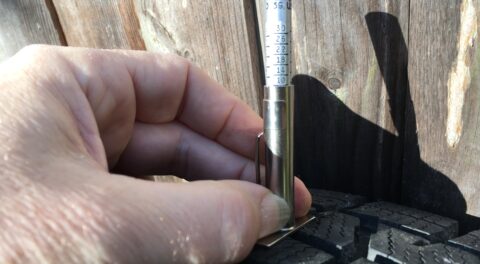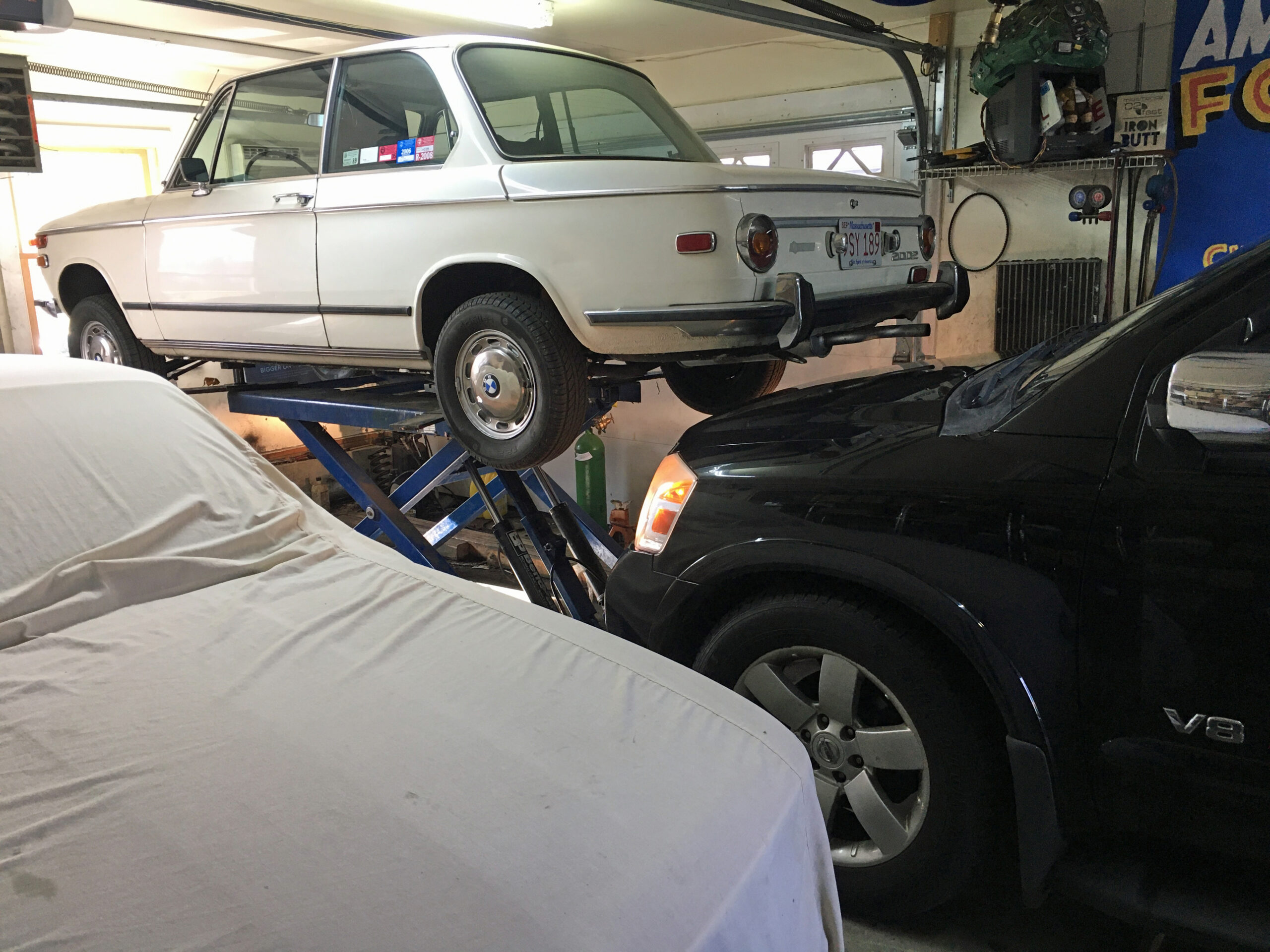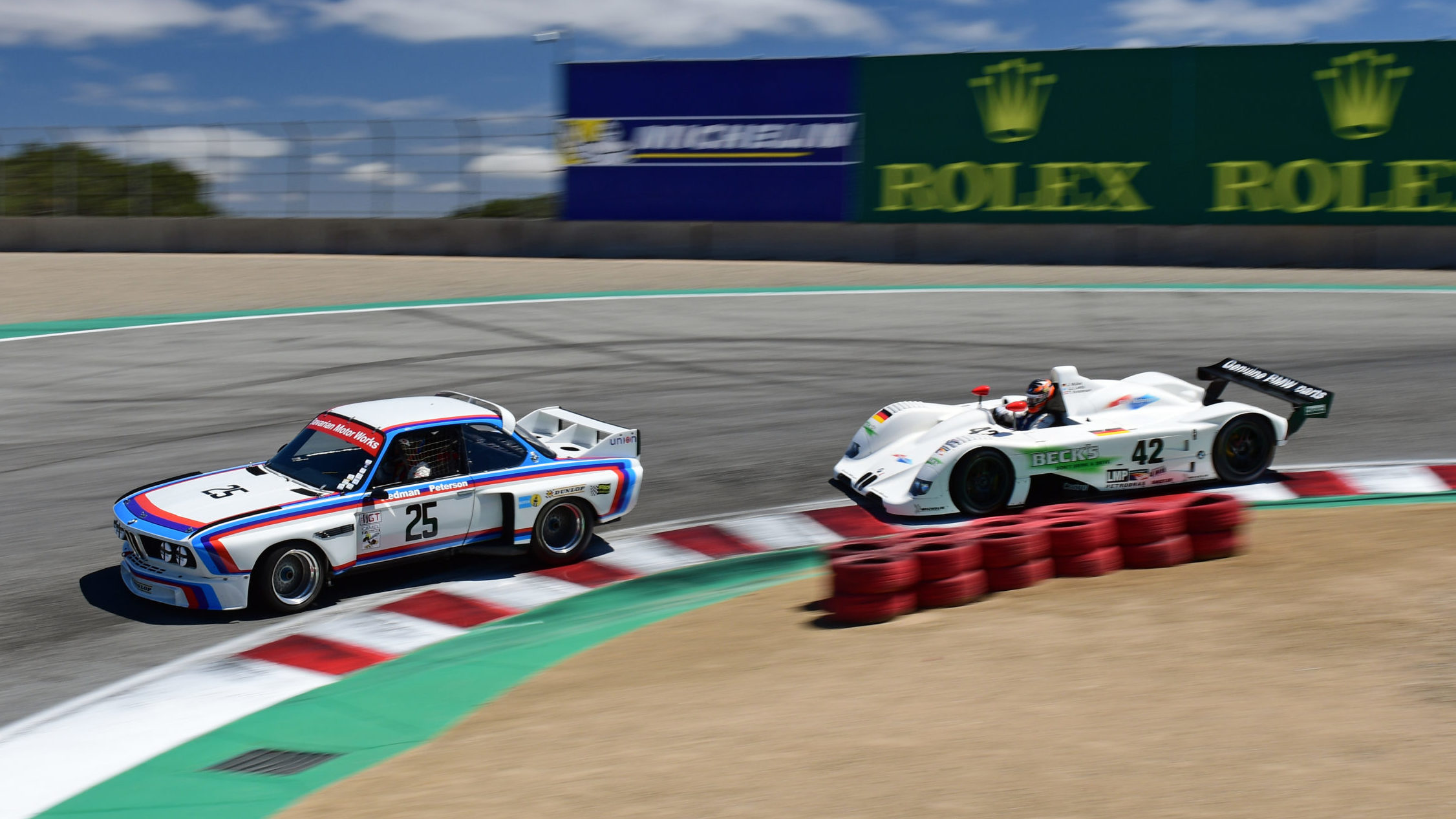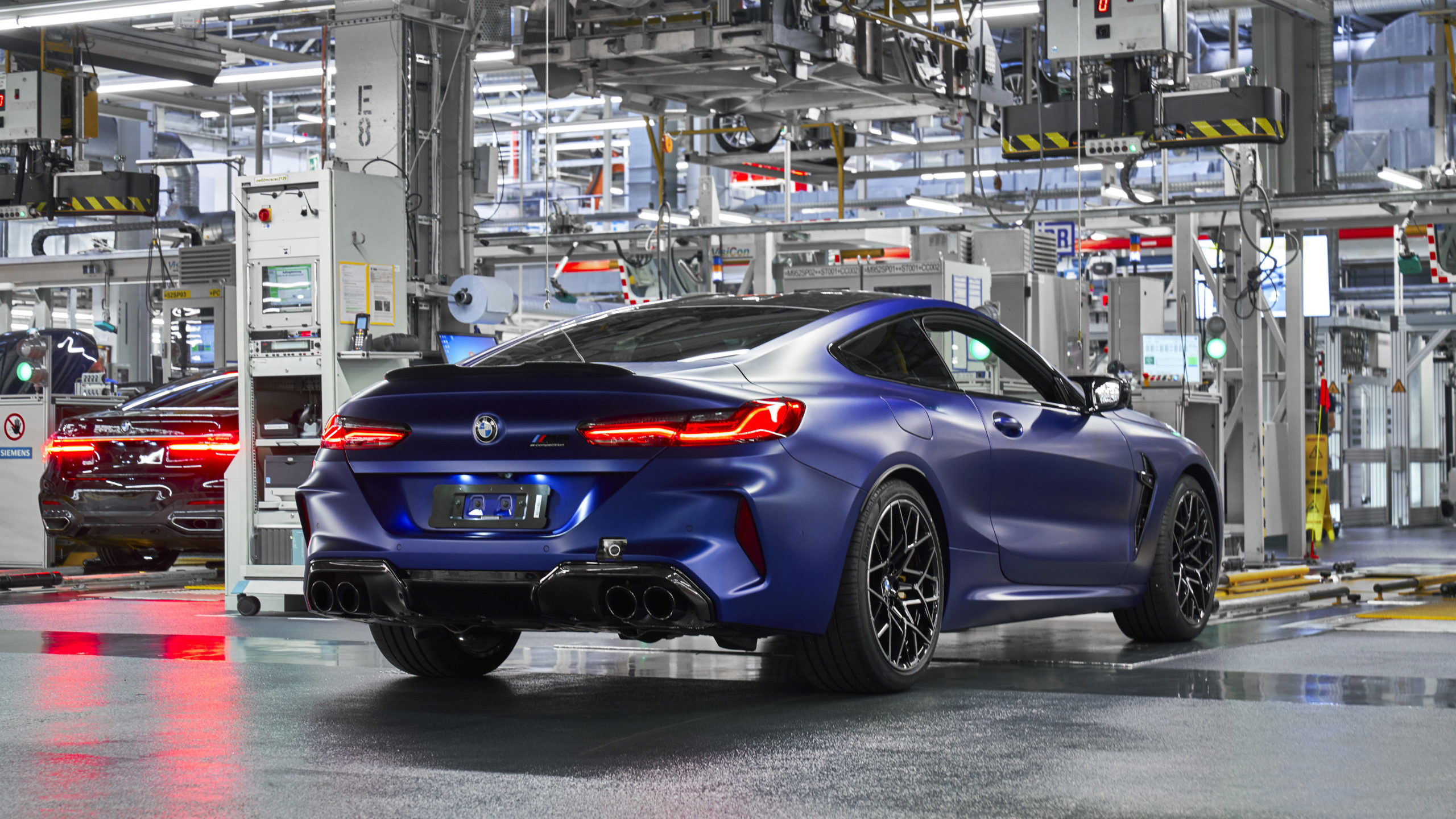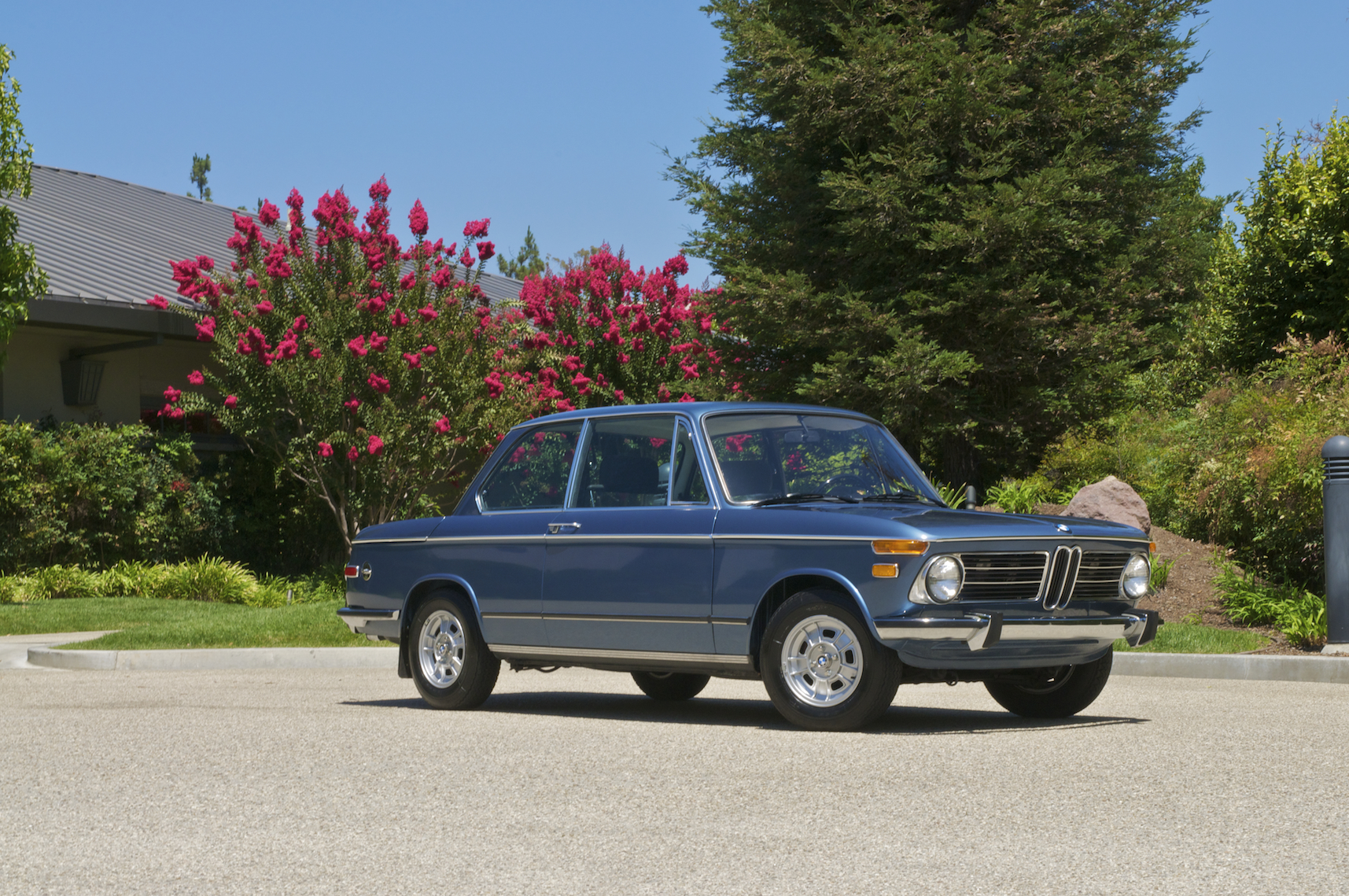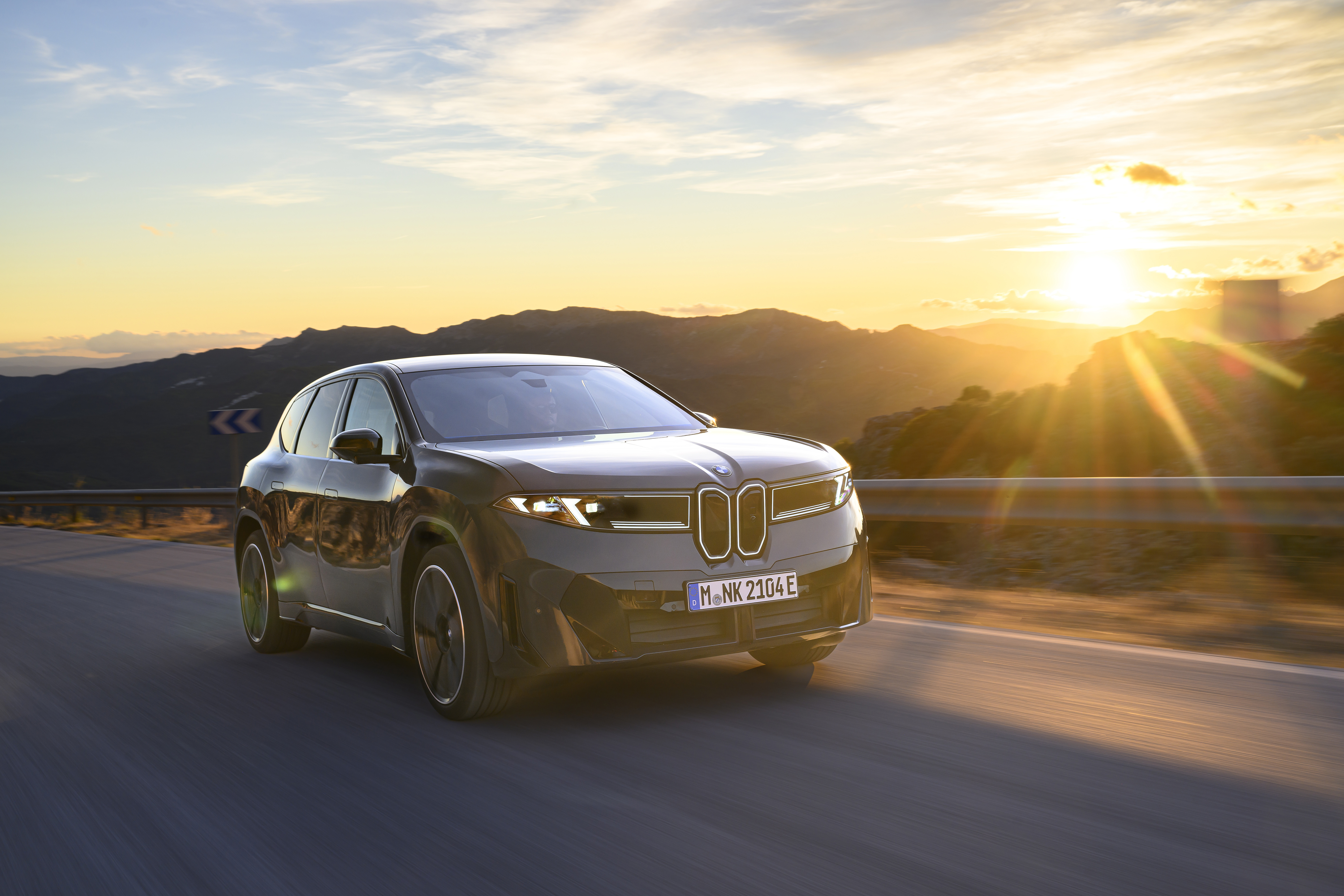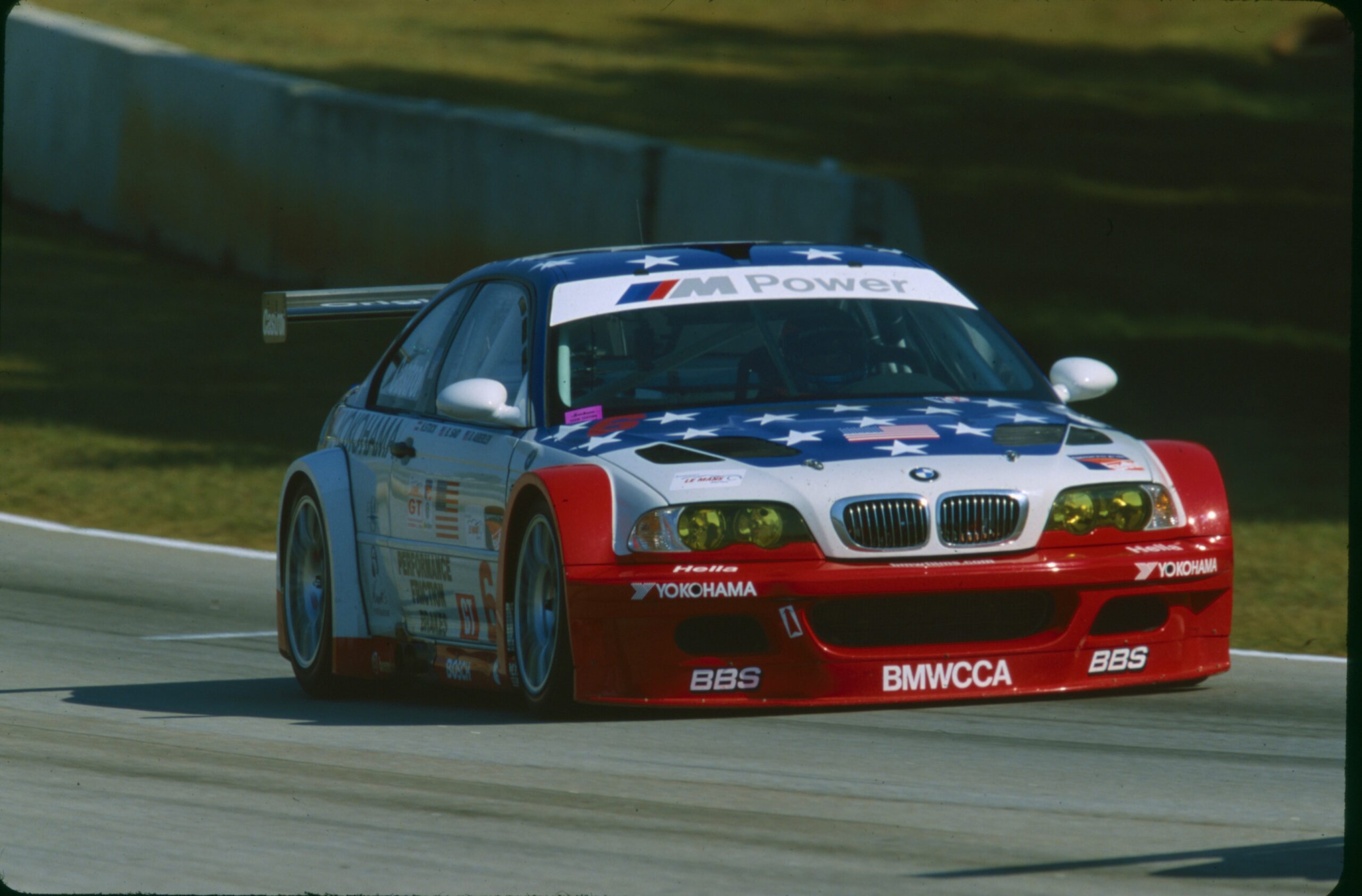Today’s topic confirms how right I was to buy back Zelda, my former 1999 Z3, in December, but first I must subject you to:
The Tyranny Of The Hose-Clamp Police, Part III: The Re-clamping (Nobody expects the Hose-Clamp Police!)
In the seemingly never-ending quest to have appropriate hose clamps for the fuel lines on Hampton, my 48,000-mile ’73 2002, I decided to pony up for the correct German Norma high-pressure-style hose clamps from BelMetric, as well as the correct German Cohline braided cloth fuel hose and brake-booster hose from Pelican. It all came to about $140 shipped. I’d normally never spend that kind of money on hoses and clamps, but if you’re going to put a car on Bring a Trailer and portray it as a survivor car that no one has boozhed up, you have to, um, not boozhe it up. I reminded myself that although $140 for this stuff was insane, it was probably less than one bid increment on BaT.
When the hose clamps arrived, I realized that some of the ones I’d ordered for the fuel lines were too small; I’d bought 10-mm clamps instead of 11-mm, and the 10-mm clamps were in fact too small to fit around the 11-mm fuel line between the fuel pump and the carb. Fortunately, BelMetric is local to me, so after a phone call and 90 minutes in the car, this error was corrected.
Unfortunately, when I opened up the package of hoses from Pelican, I saw that the 6-by-11 and 10-by-13-mm Cohline fuel lines had the black cloth braided covering, but the brake booster hose did not. I looked at their website to confirm what I’d ordered, and found that it didn’t say it was cloth-braided, and the photos clearly show a rubber hose with an internal cloth braid.
My mistake. Oh, well.
I’d previously tested the original cloth-braided brake-booster hose and it didn’t appear to be leaking—but still, it was a mess, with some of the hose-reinforcing wire showing through. The new black hose, although it’s missing the cloth covering of the original one, is German, and looks much better. And the little galvanized Norma clamps look much tidier than the big worm-drive Gemi clamps. It’s in no way a restored or even a detailed engine compartment, but at least it now looks well-maintained.
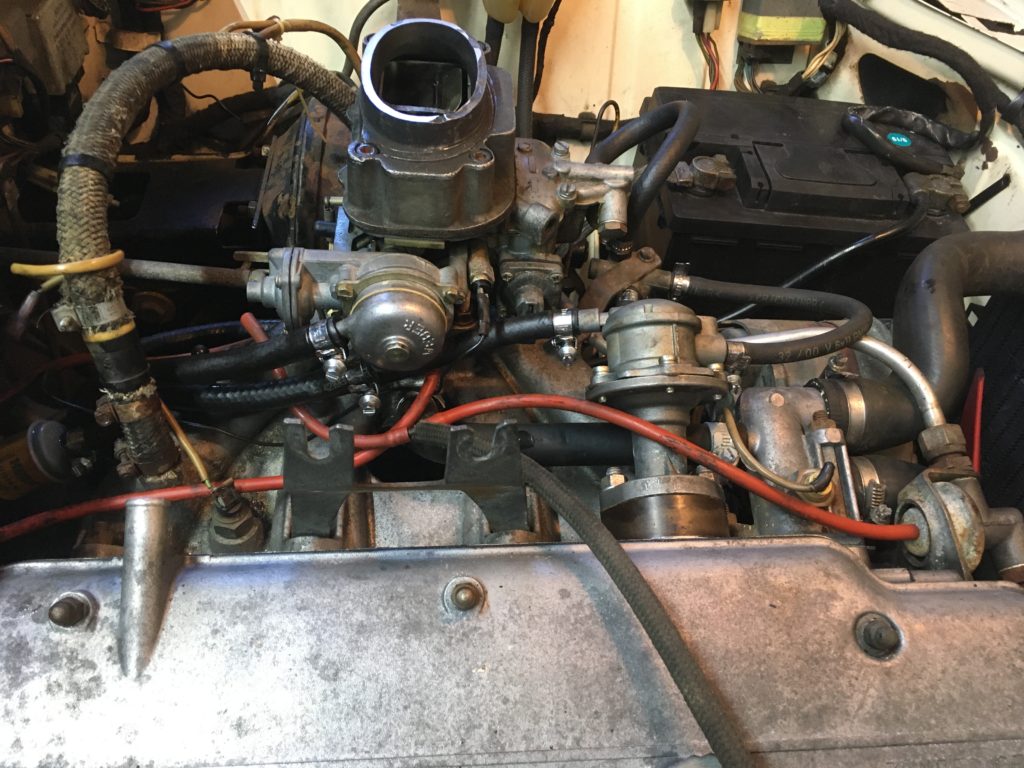
Before dropping another $140.
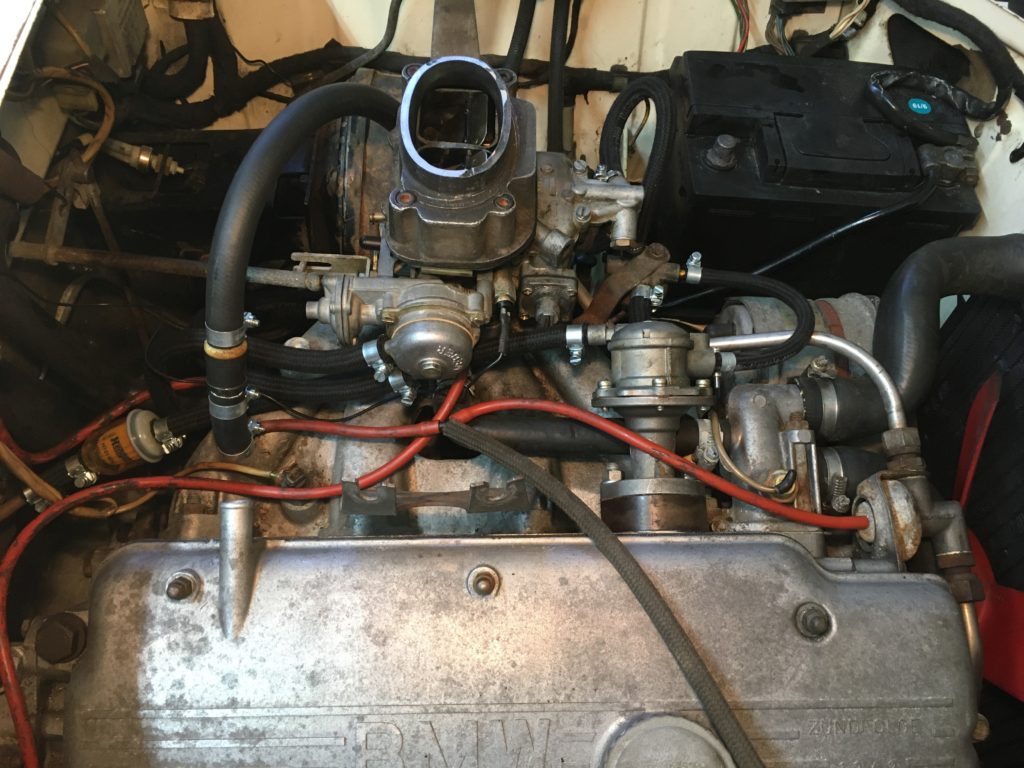
After. Ridiculous, but a methodical kind of ridiculous.
So much for the Hose-Clamp Wars. On to the main event: The Season Of Zelda
Last November, I wrote about rescuing Zelda, my former 1999 Z3, from an uncertain fate. My friend and neighbor Kim had purchased the car from me a few years ago. While her son was driving it, he had a brain fade/judgment error that resulted in his striking a median strip surrounded by a curb and putting all four wheels of the car up on the median. This bent the car’s lower control arms and wheels, shattered the front bumper cover (air dam), set off the air bag, and did a number on some low-hanging engine components like the compressor bracket, a/c- belt tensioner, and condenser fan.
The sheet metal was miraculously spared, but it seemed certain that the insurance company would total the car.
In addition to the accident damage, the car badly needed clutch work—the throwout bearing sounded like it had come apart. In addition to that, the reason I’d sold the car to Kim two years ago was that I’d run out of garage space, and that situation had only become worse, not better.
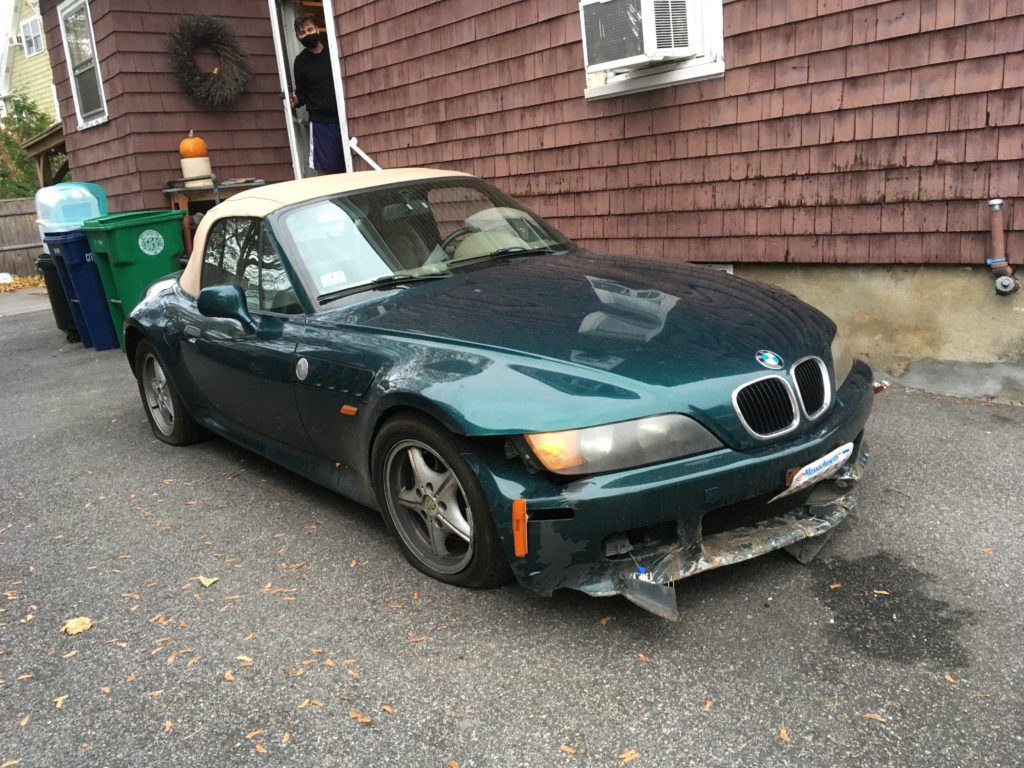
Poor Zelda!
Still, I had a lot of history with the car; indeed, it was the center of “The Cult Of Zelda”: Kim, my wife, my sister, other women friends, and I loved the antidepressant-on-wheels effect it had on us when we drove it.
I replaced the lower control arms and wheels and made the car drivable, but it still needed to have the rest of the crash damage repaired, plus the clutch work. As I wrote here, I carefully considered the factors—the preciously scarce commodity of garage space, the relatively small sum for which I could buy Zelda back from Kim, the fact that I wasn’t likely to find another decent, fun, and running roadster as cheap—and decided to buy the car back.
In early December, I put Zelda on the mid-rise lift and dived into the clutch job (ouch!). In a few weeks, it was done. I had one around-the-block test-drive in the car just before the New Year that showed that the clutch repair was successful, but it was hardly a full-on shakedown of a car that had had a traumatic impact.
Then we had a snowy stretch of winter.
While the car was laid up, I thought about replacing the shattered front bumper cover. New aftermarket units are available on eBay for as little as $225. But it would need to be painted, and paying someone to do that was likely prohibitively expensive—and there was no way to try to shoot it myself with all the cars snowbound in the garage. I vultured on eBay, hoping that a Boston Green front bumper cover would appear within a few hours drive, but nothing materialized.
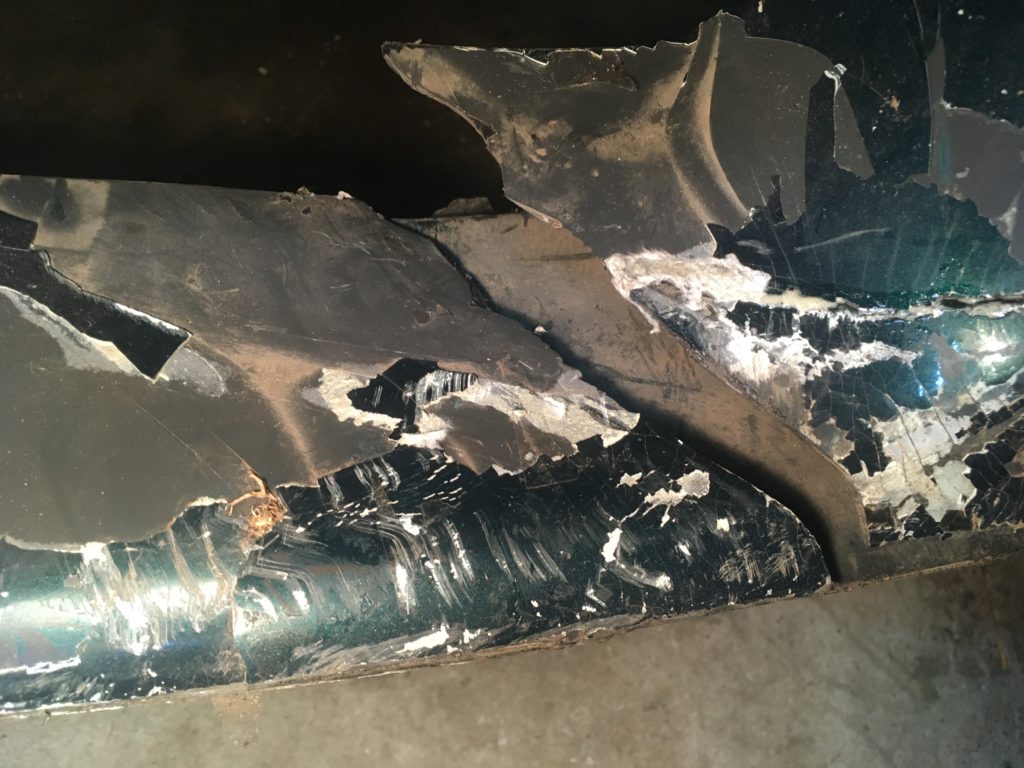
Yeah: awful.
During Zelda’s imprisonment, while I was doing my obligatory Craigslist and Facebook Marketplace pounding, I saw an uptick of the number of running, largely intact (meaning better-looking than Zelda) six-cylinder Z3s in the $2,500-to-$3,000 range. I didn’t buy Zelda back in order to make money, but I like what I do to make financial sense, and I began to wonder if I’d made the right choice allocating time, money, and space to such a damaged car. So while it was garage-bound, I tried fixing the cracks in the bumper cover.
I knew it was a silly attempt. The car had clearly been hit and repaired with Bondo previously, and now the Bondo and the paint were cracking off from the latest impact, so even if I was able to cajole the thing into hanging together, the results would be so ugly that I’d still want to replace it if that could be done in a cost-effective manner.
However, there was zero downside in at least trying to glue it up.
So, using regular Gorilla Glue on the cracks that mated well, and Gorilla Glue two-part epoxy on those that didn’t, I clamped and glued, one crack at a time. The process seemed to work well enough to hold the air dam together.
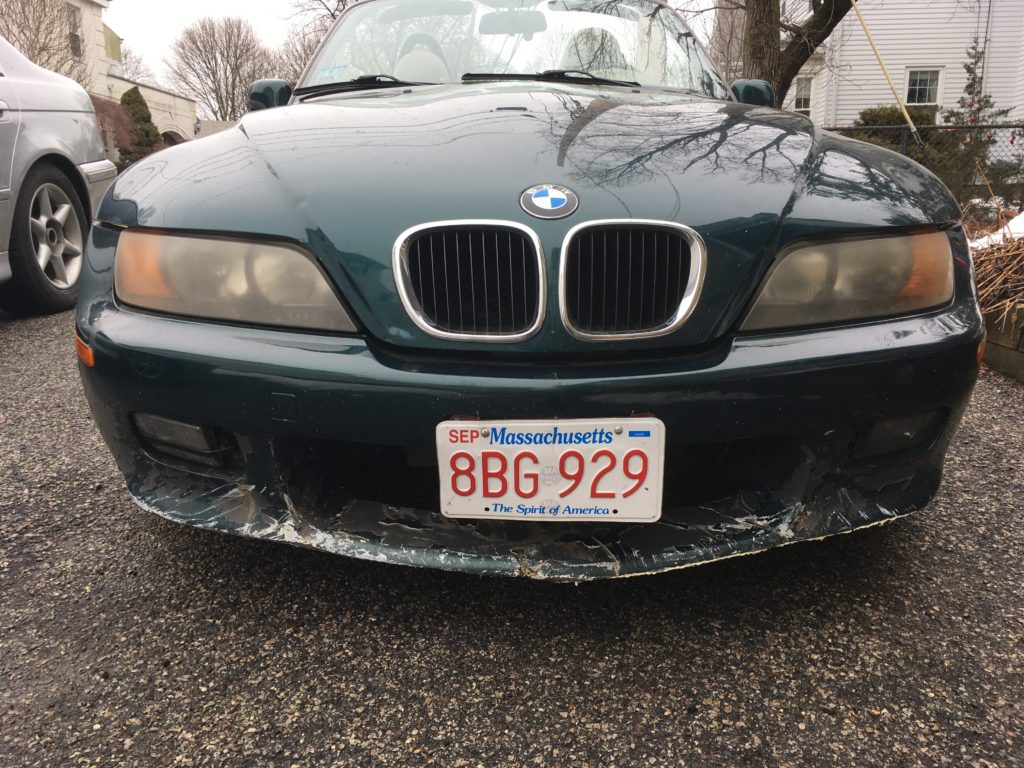
Still seriously ugly, but at least no longer flapping in the breeze.
Then I did another extremely satisfying zero-cost repair. When Kim’s son was using the car, for reasons only clear to the brain of a twenty-something, he mounted an iPhone holder in one of the dash vents and held it there with about fifteen pieces of Gorilla tape. While Kim still owned the car, it wasn’t my place to say anything (actually, that’s not true; at one point after working on the car and seeing this, when I returned the car to Kim, I said “and quit letting Tyler drive it!“), but once the car was mine again, I knew that at some point I’d need to deal with this mess, and it wouldn’t be trivial.
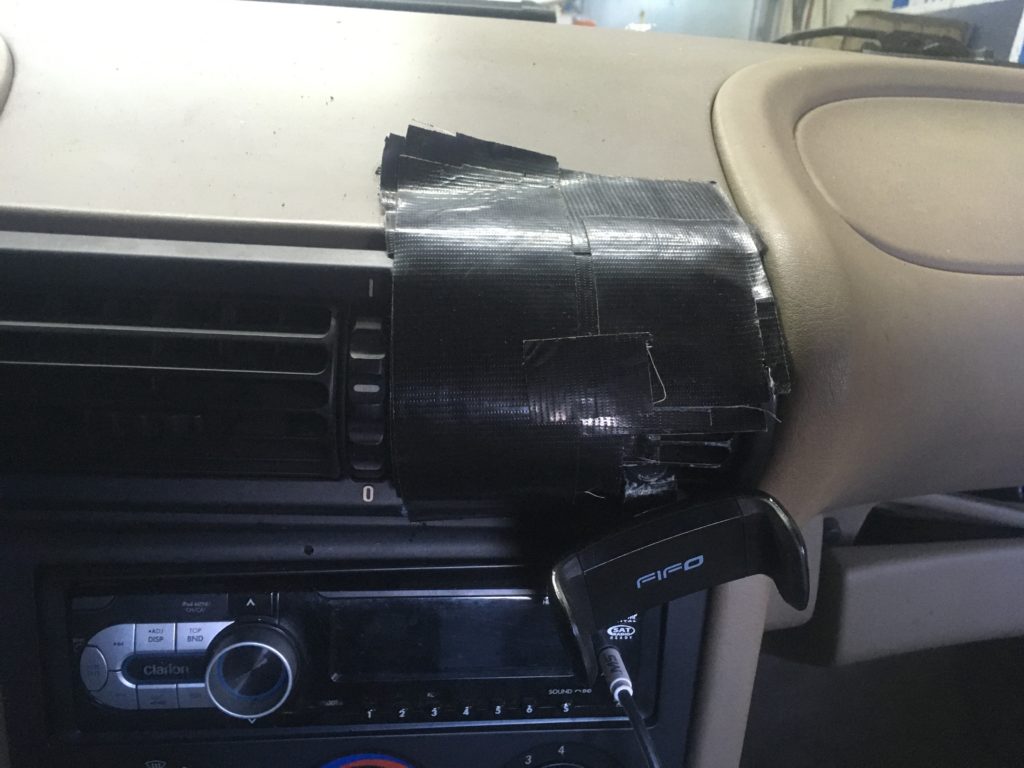
I know…
I peeled off the tape (which required grabbing it with pliers and bracing my feet against the dash), and to no one’s surprise, what remained was a mess of hardened adhesive on both the big flat part of the dash as well as in the crevices of the vent. Acetone does a pretty good job of removing adhesive, but it can discolor surfaces, and I didn’t want it to stain the beige dashboard.
I have one of those adhesive erasers that mounts in the chuck of a drill left over when when I needed to clean the remains of the under-hood insulation off one of the 2002s. It worked like a charm on the dash. Obviously I couldn’t use it in the intricate slots of the vent, but fifteen minutes with acetone and paper towels, and voilà!
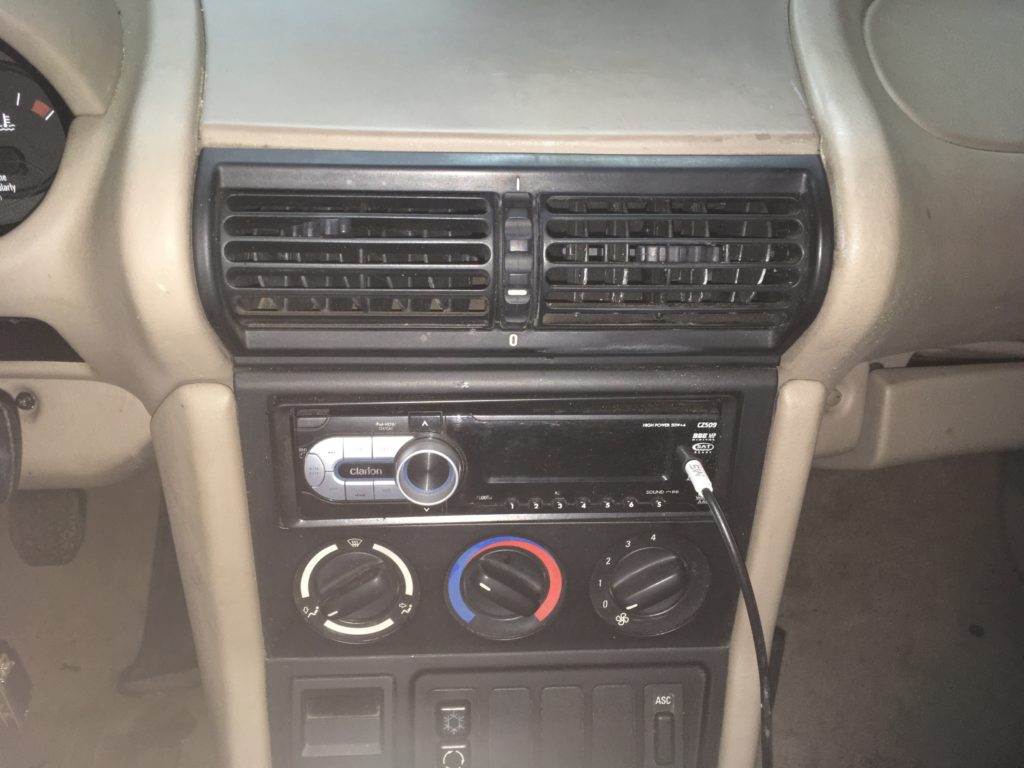
Begone, ugly residue of youth!
When the calendar rolled over to March, suddenly a flood of warm weather arrived—warm, at least, relative to the piles of snow that still lined the roads. It didn’t take any prodding to get me to don the leather, the gloves, and a wool Red Sox cap, open the garage, release Zelda, drop the top, and do the rolling-Xanax thing.
For years, I would see people driving convertibles with the top down like this either late in the year or early in the spring. Whenever I’d see someone doing it, I’d think, “Ah! What a show-boater! What a gadfly! It’s clearly too cold to be doing this. They’re only doing it because they want people to look at them.” It was only after I started owning ‘verts and personally experienced the whole-body relaxation response you get when you drop the top and drive one (especially if it’s a nifty, nimble little roadster) that I understood that these people don’t give a rat’s patootie about you and what you think; they’re doing it for how it makes them feel.
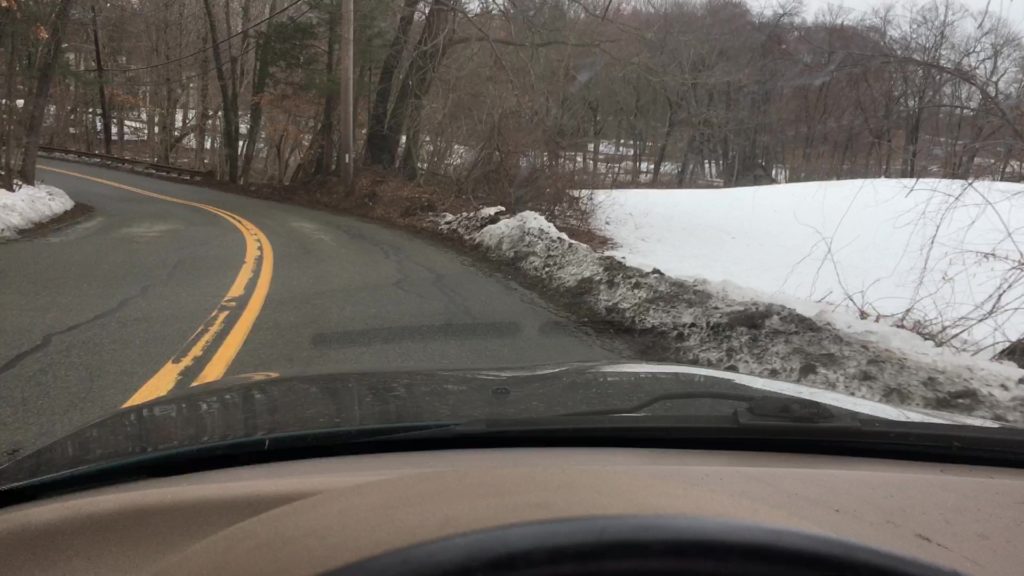
You can’t see that the top is down and I’m smiling, but… yeah.
Instantly, everything made sense. I felt like Wyle E. Coyote saying to himself, “I am super genius!” I had stepped up to this car last year like it was a slot machine, put time but very little money into it, and now it was paying off handsomely. As I let the brisk air wash over me, my body and brain together yelled, “I freaking love this car!”
As the weather continued to improve, I used the Z3 every chance I had, my cares and stress melting away with the snow. I took the car onto the highway, nervous that I’d find some accident-related artifact if the handling, like crabbing or drifting to one side. Nope—nothing. The only thing that went wrong was that one day while driving home, I didn’t slow down for a known frost heave that; when I’m driving the Lotus, I need to crawl over it at about ten miles an hour or else the suspension bottoms out. Ha! Silly fragile Lotus! Zelda is not like you! Zelda is strong! Zelda survived curb strike! Zelda survived twenty-something-year-old-boy with role of Gorilla Tape!
I blasted over the frost heave, just loving the bejesus out of this fun little carefree car.
When I got home, I got out of the car and saw that my air-dam repair had failed. But with the wind literally still in my hair, I didn’t even care.
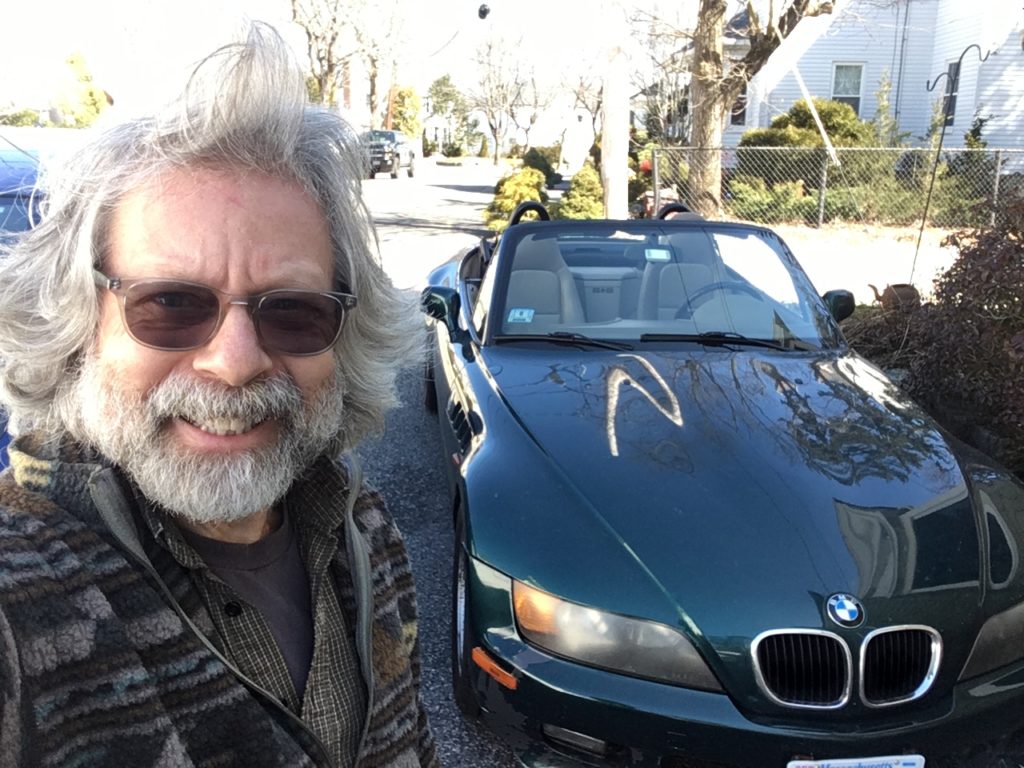
If you don’t look like this after driving a roadster, you’re doing it wrong.
There are many songs about how things run in cycles. It would be a natural to go to “To everything there is a season” from Turn! Turn! Turn! by the Byrds (really, from the third chapter of Ecclesiastes). But instead, my mind went to the Zombies. “It’s the time of the season”… for Zelda.—Rob Siegel
Rob’s upcoming book, The Best Of The Hack Mechanic: 35 years of hacks, kluges, and assorted automotive mayhem from Roundel magazine, will be out in the spring. His other seven books are available here on Amazon. Signed copies can be ordered directly from Rob here.

